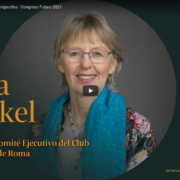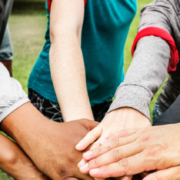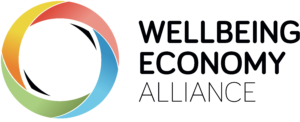Previously published by Capitals Coalition hereBy Natalie Nicholles, Senior Director at the Capitals Coalition.
The pandemic is hard to sum up. It is full of tragedy and heartbreak, of resilience and courage, and of humanity and solidarity. Things that were deemed impossible have become reality – social distancing is the new norm, vaccines are developing at breakneck speeds and some elected officials transformed into bold leaders by choosing to prioritize health over the economy. But what stands out most prominently to me amongst the terrible and incredible moments is that we have sleepwalked into a crisis of values.
In this crisis, market values have steadily infiltrated societal values so much so that our understanding of value has come to mean success and prosperity through wealth maximization, commodification and externalization of social and environmental impacts. To be considered valuable, an asset or activity must be captured in the market, and anything that sits beyond the economy’s reach is essentially worthless. We’ve been steadily moving from a market economy to a market society.
Despite the warnings from climate change and the loss of our natural world growing louder and mounting demands from scientists and civil society for urgent action, policymakers and capitalism have trundled along, unwilling to admit – or face – necessary radical change. It’s taken the human tragedy of a global pandemic and its deep impacts on our friends, families and communities to realize that the values underpinning current economic thinking are, at worst, responsible for gross inequalities, massive biodiversity loss and the destabilization of climate and, at best, poorly designed to solve them.
Signs of change
The calls to Build Back Better for our people and planet continued to grow throughout 2020 and beyond. CEOs and civil society groups authored letters to political leaders, campaigns to RESET the economy went global and more articles than I can cite called out the failures of contemporary capitalism in search of a more meaningful, holistic and people-centric approach. Whether it’s donuts or missions or pathways to a resilient economy, the work of economists such as Kate Raworth and Mariana Mazzucato, think tanks like New Economics Foundation and global movements such as the Wellbeing Economy Alliance are being increasingly recognized as possible alternatives to common economic thought.
As Mark Carney stated in his 2020 Reith lectures, we need our economic system to find a new equilibrium where the market is organized in pursuit of what society values. 2020 has demonstrated that what is truly valued and valuable are our relationships, solidarity, fairness, responsibility and our connection to the planet. Such intangibles are invisible in this economy and yet fundamental to human prosperity.
These societal values are needed to determine how we develop and appraise policies for our public resources, where we invest our savings and investments, how we run our businesses and deliver public good. Rebalancing the system and redefining value has the potential to transform the economy from exacerbating our most pressing challenges to becoming a problem-solving mechanism for them.
To make this reality, we must reframe the roles, structures, and social contracts within and between business, finance and government, ensuring that the information used to make decisions represents what we value.
Accounting for nature, people and society – our natural, social and human capital – as Capitals Coalition organizations know well, transforms decision-making.
A way forward
I believe the capitals approach can help us to realign market values and reform capitalism. The Coalition’s vast community of business, finance, government, accounting and standards, civil society and science and academic organizations have been applying and championing a capitals approach across the world for over a decade.
Today, there are initiatives to ensure that financial accounts and accounting reflect a company’s financial, social and environmental performance (see European Union’s Transparent Project and Harvard’s Impact Weighted Accounts Initiative). There’s innovation in financial products to account for natural, social and human capitals and there are leading companies, such as Olam and Kering, who have been working to internalize their externalities. How we integrate the value provided by nature, people and society in our economic decisions has been the focus of many.
We’re seeing movement at the national level, too. “We cannot recover better without better information to guide us,” says Elliot Harris, United Nations Chief Economist when explaining the new Ecosystem Accounting standard. “It is high time we moved beyond GDP and measured our wealth and success with tools that recognize the value of nature and people.” This was echoed by the UK Treasury’s Dasgupta Review which called for the adoption of an inclusive wealth approach to economic planning and decision making by measuring a country’s wealth in terms of all assets, including natural, social and human capital.
What we need now
While the capitals approach has captured the minds of so many, there remains a momentous shift needed in the mainstream if we are to remedy the crisis of values.
We need deep cultural change to drive recovery packages and commitments. We need to boldly evolve our understanding of capitalism as, not an end to itself but, a means to deliver public good. We need adaptive accounting processes that include our impacts and dependencies on natural, social and human capital. We need an enabling environment that promotes a culture of ethical business, greater connection to communities and a sense of accountability for successes and failures. We need deeper collaboration between business, finance, government and civic actors to develop new rules, provide clear incentives and accountability and be good stewards of our planet and of one another.
I feel that we’re at an inflection point in our crisis of values. To be more resilient, more inclusive and more sustainable, we must power a shift in values if we are to recover from the COVID crisis and shape the economy of the future.










